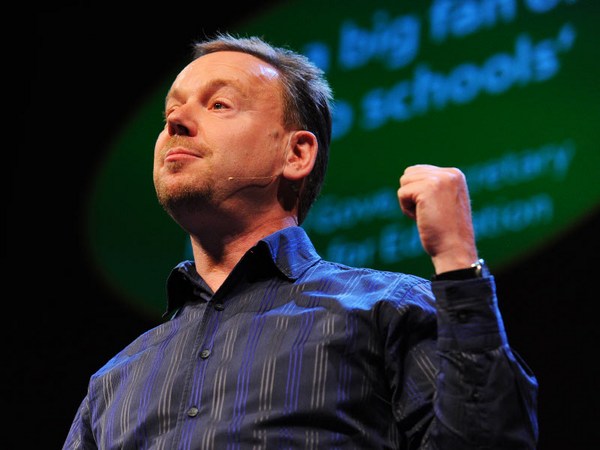As a young writer, a lot of what I do is dependent on having a great idea. Whether it’s textbooks, novels or non-fiction books, I can't really do anything until I have that great idea to start with, and that can be difficult for me because I really struggle to come up with great ideas. I mean, I’m good at coming up with basic ideas, I can always find something to start with. So, a bit like drafting this talk, I’ll start writing with a basic idea, feeling fantastic. I'll write for a few hours and then I'll close my laptop for the day. But then the next day, I’ll open back up my laptop and read off my work in sheer horror, and I will ask myself the question that so many of us ask when we have a terrible idea. If all I can produce is basic terrible ideas, how am I ever supposed to have those great life-changing ideas? Where's the link? I want to share my simple and empowering belief about how great ideas come about. My belief is that great ideas are never spontaneously created. They never come from those eureka moments inside our head. Instead, I believe that all great ideas come from developing our basic ideas. We develop our great ideas through a cycle of starting with our dreams, which is our end vision of the idea, setting goals, taking action, reflecting and we follow this cycle round and round, slowly adjusting each one of these stages for however long it takes for our basic idea to develop into a great idea. So, let’s start with the first step. Dreams. When I say dreams, I’m not talking about the dreams you have at night. When I say dreams, I am talking about the unshakeable visions you have day in and day out. Whether you realize it or not, those dreams are visions of your ideas. Those visions are the things that are truly meaningful to you. So when you’re looking for the first idea, just start with your dreams. In 2019, I was in my first year of engineering, and on the morning of my first engineering exam, I was sitting in the library with this dream I couldn’t shake. It was the dream of writing high school textbooks for students and having some form of a non-profit model attached to it. And that was where my great ideas started. I was going to write textbooks for free. Was it a great idea? Of course... not. It was a terrible idea! I had no clue what I wanted the textbooks to look like, I didn’t have any teaching qualifications, I never written anything longer than 10 pages in my life, and I didn’t even know how I would make it non for profit. But a basic, flawed idea is where all great ideas start, because great ideas are developed. Now comes the second step. Goals. We all know that when you have a dream, you need to have a goal. A plan of action of how and when you can bring your ideas into reality. For me, I translated my dream of writing textbooks for free into the goal of writing: not one, not two, but five year 12 textbooks in chemistry, physics and the three levels of math, and I gave myself the timeline of one year. One year, five textbooks. It was an ambitious goal, but it was an exciting goal. Now comes the third step - action. Action is just about showing up every single day and maintaining a relentless work ethic, no matter what. And that’s easier said than done. Staring down the barrel of my giant goal, I knew that I wasn’t going to be able to do this on my own. So after my exams finished, I called up some of my friends. And four of them were crazy enough to come on board with me. As a group of five, we could not have been more different if we tried. My first mate to join, Robbie, was studying law and had a much greater interest in humanities than he did in math & science. My second mate to join, Arian, was studying engineering and he didn't even really like writing. My third mate to join, Tyler, was studying sport science, and again, loved the humanities a lot more than math and science. And finally, as the cherry on top, my sister joined, Georgia. She was studying math, was two years older than all of us, and didn’t even know my other three mates. But that was us, four 19 year olds and one 21 year old setting out with the dream of writing textbooks for free. We have five books to choose from, and we decided to start with our chemistry book. And for our first chapter, we set the timeline of one week. One week. We worked day and night on that first chapter. But then, one week deadline went by, and Christmas, then January and February. And It was only after three months of working that we finally finished our first chapter. But what about our plan? The chemistry and physics books were meant to be done by now, and we were meant to be onto the math books. How could this possibly be? This is where our process comes full circle, because we can now reflect. Reflection comes when we’ve taken some action, and we now know a few things we didn’t know before which we can use to shape the dream, which shapes the goals, which shapes the actions, then once we’ve done that, we can reflect, and go again, and again, and again. For our timeline, it was obvious to everyone but us that we weren’t going to finish five textbooks over the course of a year. So, reluctantly, we revise our timeline to just finishing the chemistry book by the end of the year, in nine months time. But more importantly, what about the reflection on our first chapter? How many times do we go through this whole process of dreams, goals, action and reflection during those first three months? 80 times. Eighty. 80 times. We went through 80 redrafts of a 100 page chapter. At first, the drafts were dreadful. The content was horrible, the diagrams were all hand-drawn and the questions really worked. But each time we reflected our end dream of the chapter got better, which led to a better goal, which led to better actions, which led to less painful reflections. And we followed this cycle round and round, 80 times, until we got the best first chapter we could make. Reflection will come in moderate waves most of the time, but then, as big waves at other times. I think you know where I’m going with this. Excited and relieved to have finished our first chapter, we decided to send it off to our chemistry teacher Mr. Rumble, confident that once he laid eyes on this singular chapter, he’d be eager to put our books onto the book list for next year. So we sent it off, and two days later, we got an e-mail back from Mr. Rumble. It was a long email, so I won’t read at all. But I think this part of the email captures his enthusiasm for our textbooks. “There’s still a lot to look at. I wrote lots down in the book.” And he was right. When we got back the chapter, and quite literally, every single page he made suggestions pointing out fundamental flaws in the book, major structural issues, huge errors in the problem sets, a spelling error... in our book title. (Laughter) It was a disaster. Here we were as a group of five, absolutely crushed. Three months of hard work and all we had to show for it was one chapter that had just been torn to shreds. Reflection is inevitable and unforgivingly frequent when you’re working on your idea. You’re just going to make so many changes that the idea feels like a bad one all the way up until the end. But reflection isn’t a bad thing. Reflection is just giving you ways to improve, and it’s that bit closer towards that great end idea. With this in mind, we took on board all the feedback we received from Mr. Rumble working through every single one of those edits. And through those edits, came a reinvented chapter completely unrecognizable from the original copy. For our problem sets, we added 15 fictional characters who attend chemistry college and go on all kinds of crazy chemistry adventures throughout the year; like using stoichiometry to take down evil companies, or winning a million dollars at the Titration World Championships. But in light of losing that money, burning down a sulfuric acid factory. We got to do our own test notes, exam notes, exam papers, online answer guides. And we gave the whole book a brand new student to student voice. So it felt like we were sitting next to the students talking to them casually about chemistry. These changes came across many, many, many, many drafts. But something was clear. Our basic idea of writing textbooks for free was turning into a great idea. The only minor problem was we’d finished one chapter in five months. And we had seven more chapters to go, with seven month left. So what happened in the end? Well, over the course of those next seven months, we worked tirelessly, jumping across all of the different chapters, accumulating 1500 different documents between the five of us, writing the last chapter 3 days before publication. But for the first time ever, we actually met our deadline. We got the book done. When we finalized the publishing details and the unit costs, our dream of the non-for-profit model finally came into fruition. We did some math and we realized that we could use the proceeds from every two sales to produce and donate a third textbook, which would go to the library of a school in a low socioeconomic area. So in the end, our basic idea became a great idea. The chemistry textbooks were almost a thousand pages long with a unique structure, a unique student to student voice and a great two for one donation model. When people look at a great end idea, it is easy to see at face value, as if the person conceived it from the start. But more often than not, a great idea comes from starting with your dreams, setting goals, taking action, reflecting and following this cycle round and round and round for however long it takes, for that basic idea to develop into a great idea. It took us a lot of attempts for us to get our idea right. And it’s going to take a lot of attempts to you to get your idea right. The important part is just about getting started and then never stopping. So have the courage to start and the resilience to stick with this process, and I promise you, slowly, your basic ideas will start to develop into the great ideas that not only go on to change your life, but the lives of those around you. Thank you. (Applause and cheers)
Related talks
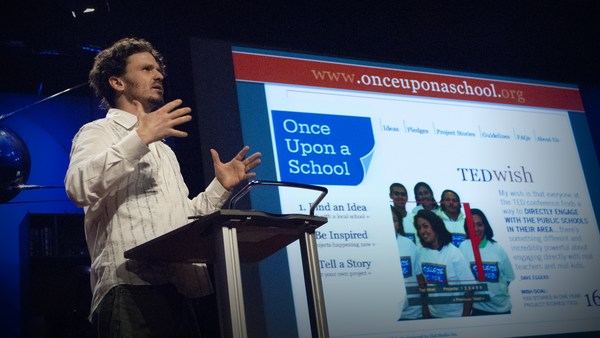
Dave Eggers: My wish: Once Upon a School
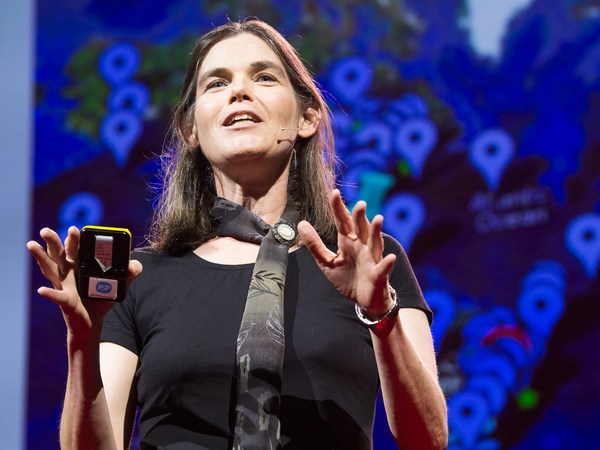
Daphne Koller: What we're learning from online education

Freeman Hrabowski: 4 pillars of college success in science
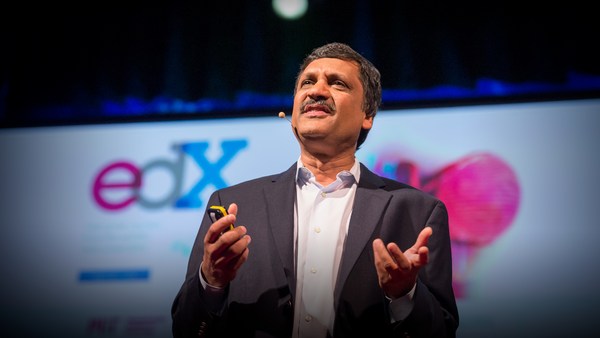
Anant Agarwal: Why massive open online courses (still) matter
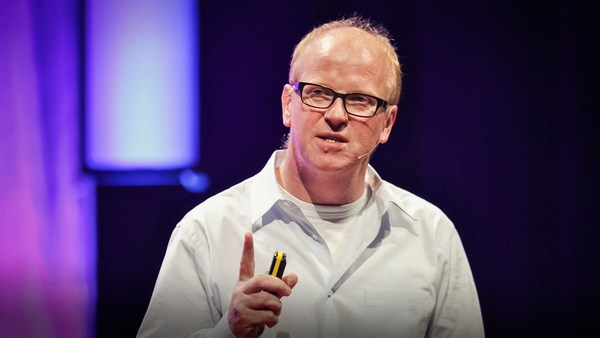
Charles Leadbeater: Education innovation in the slums
